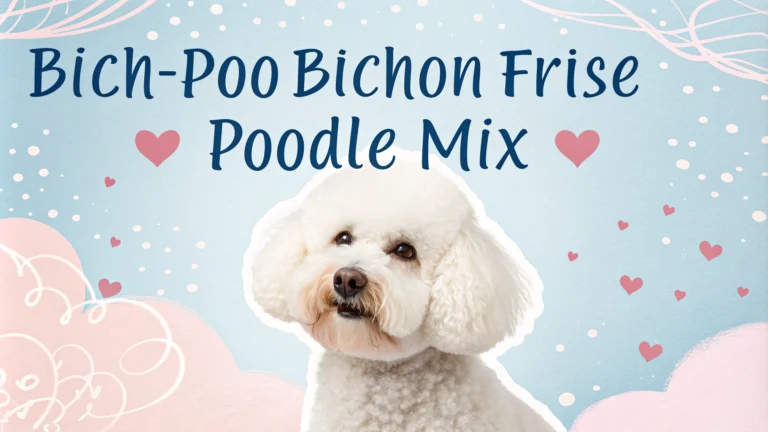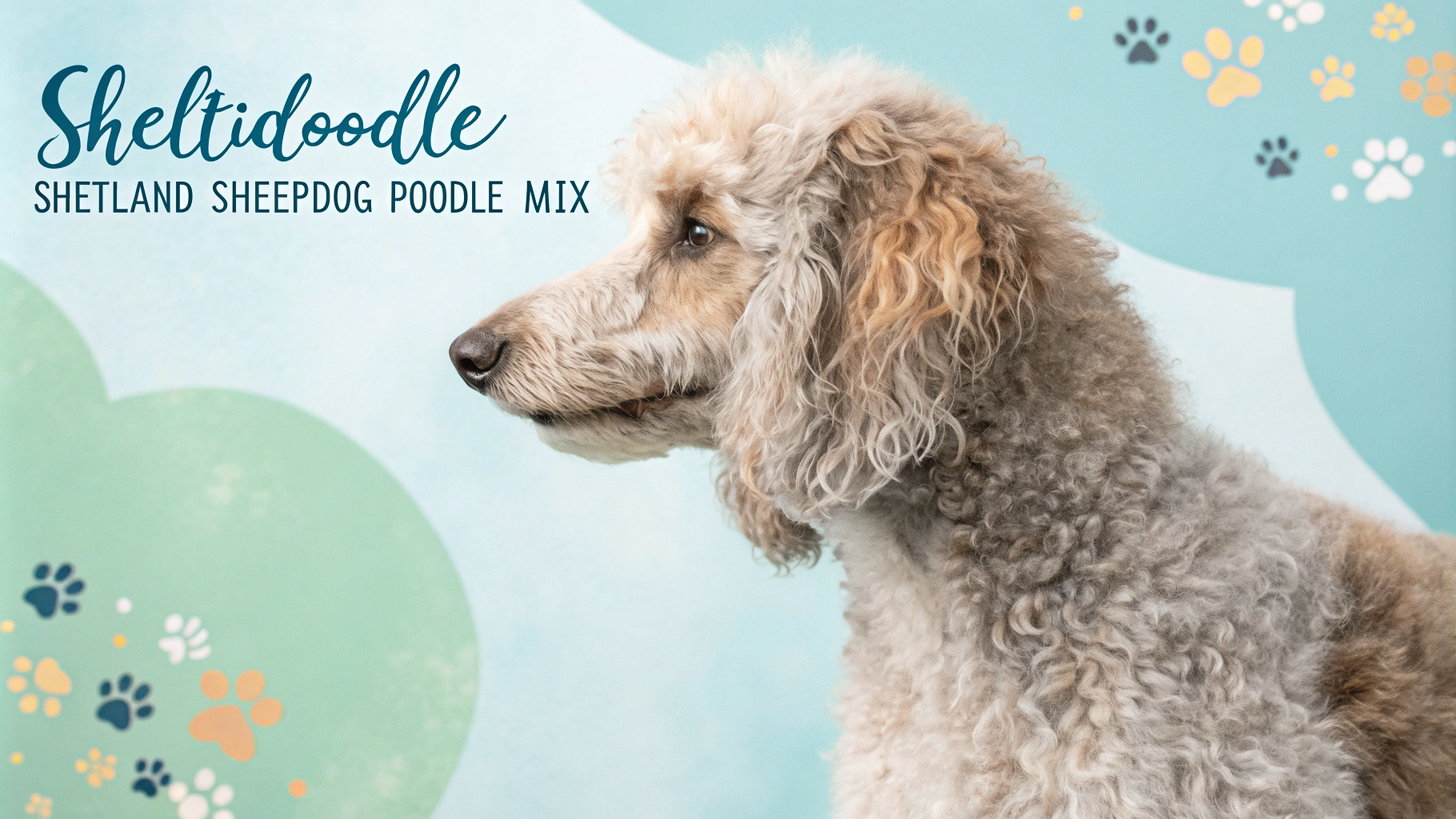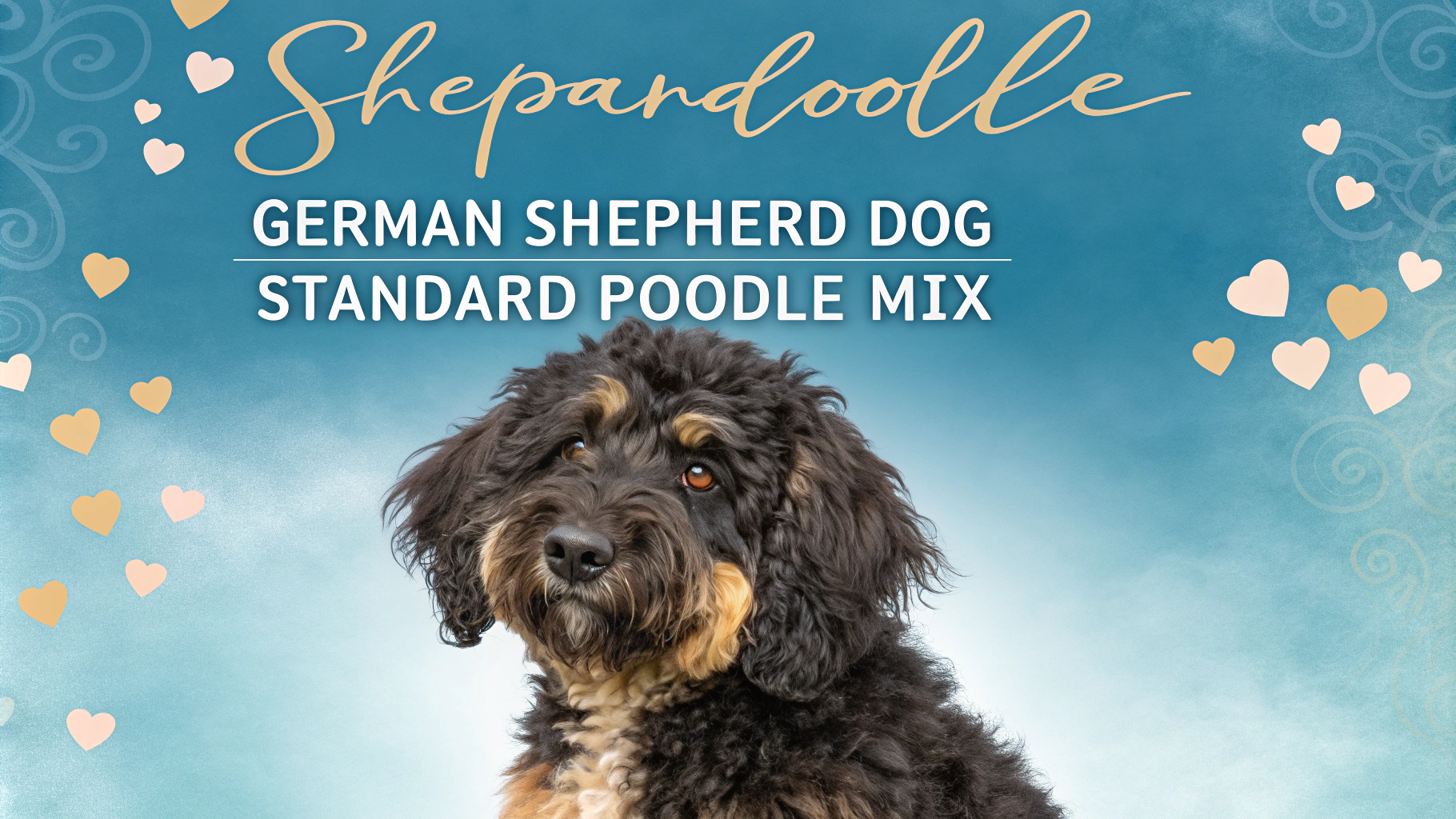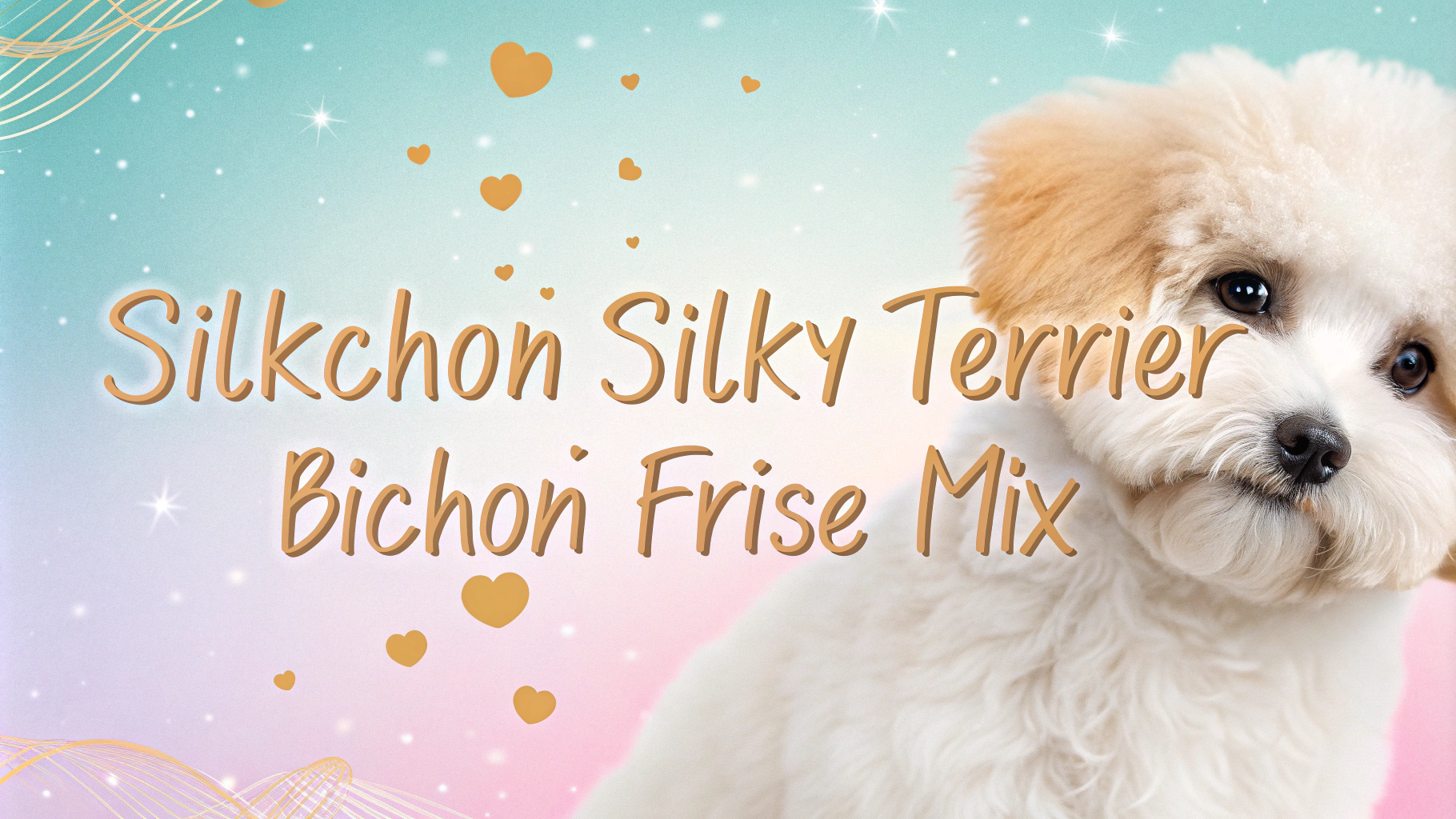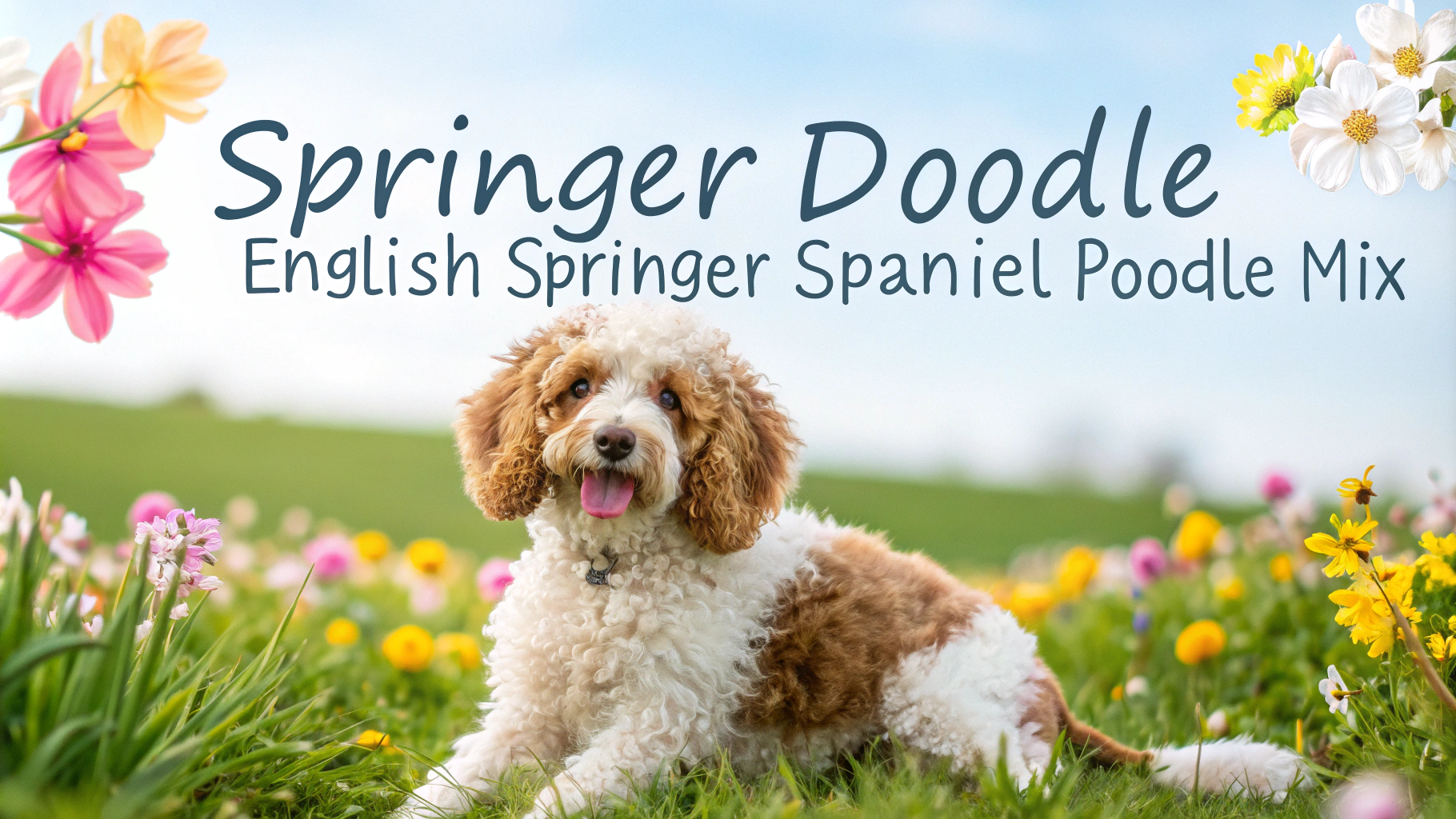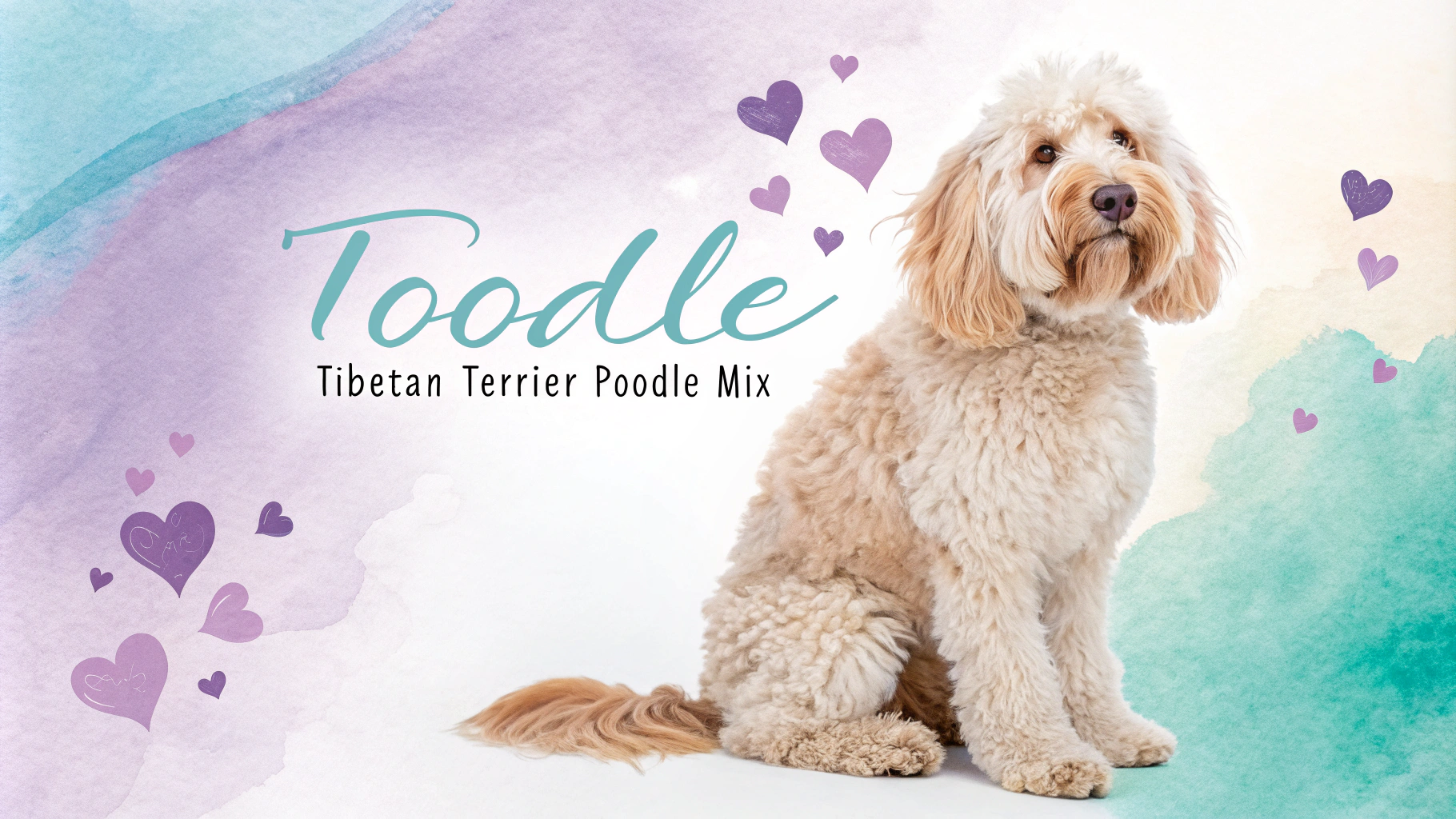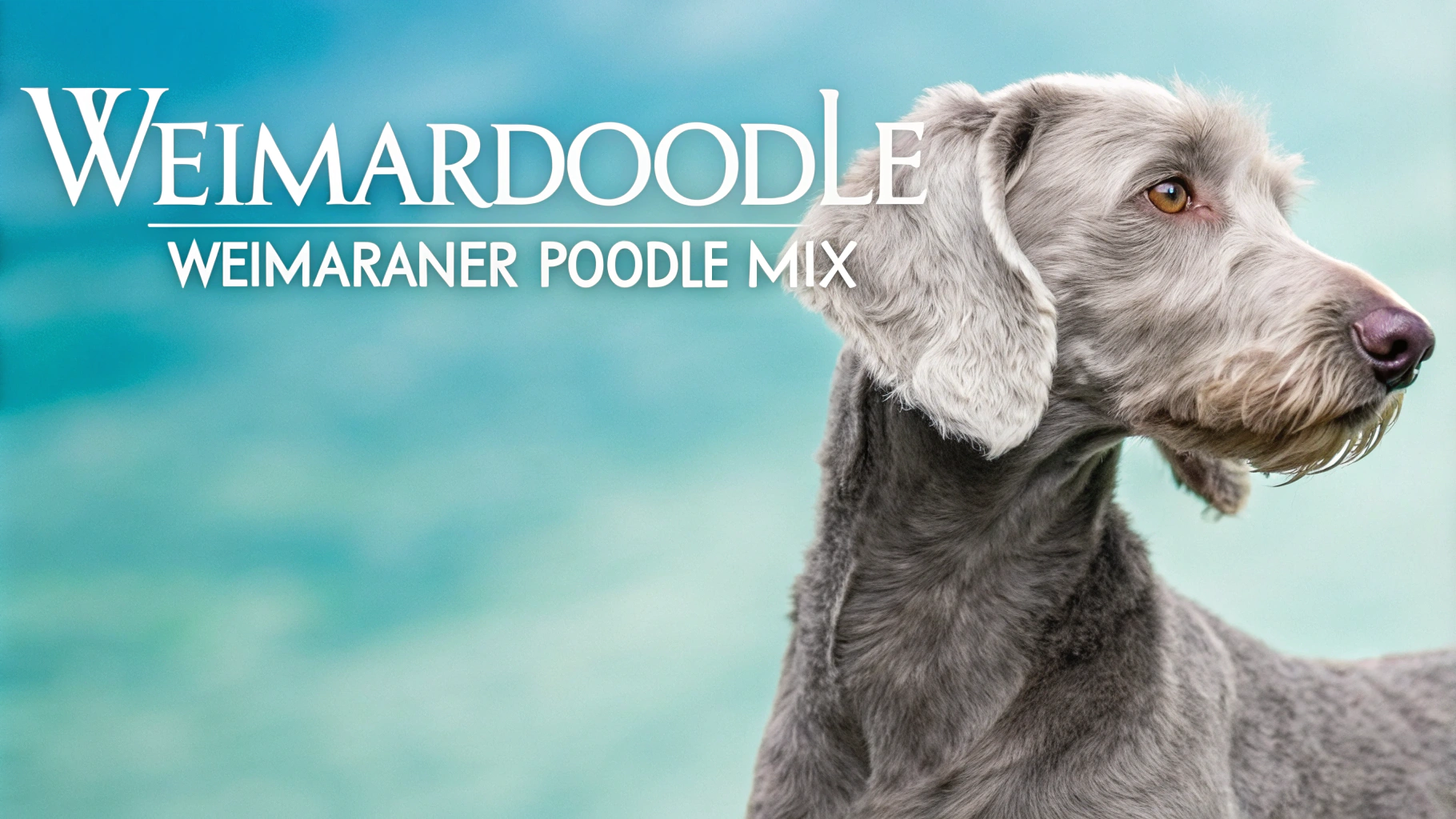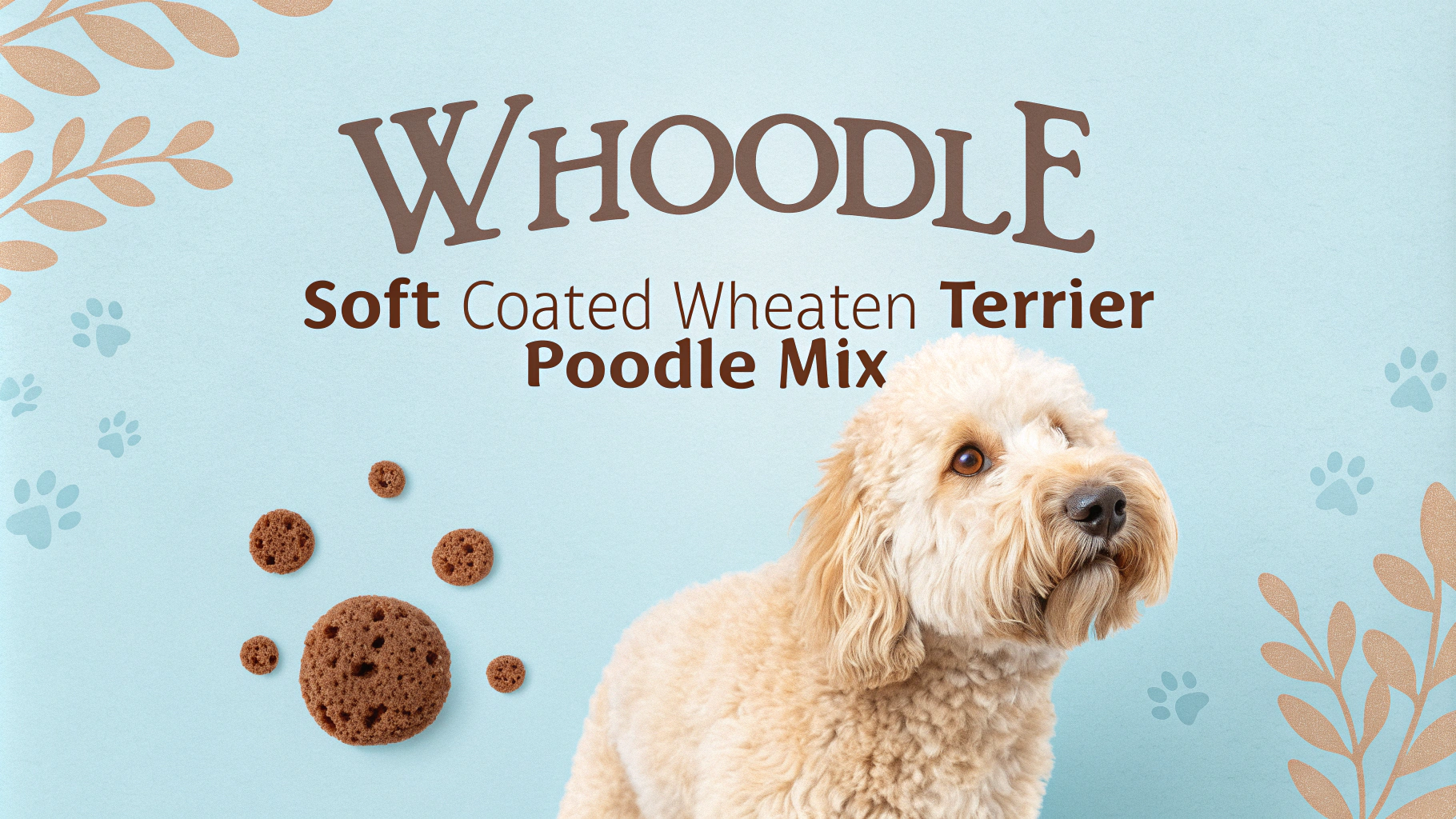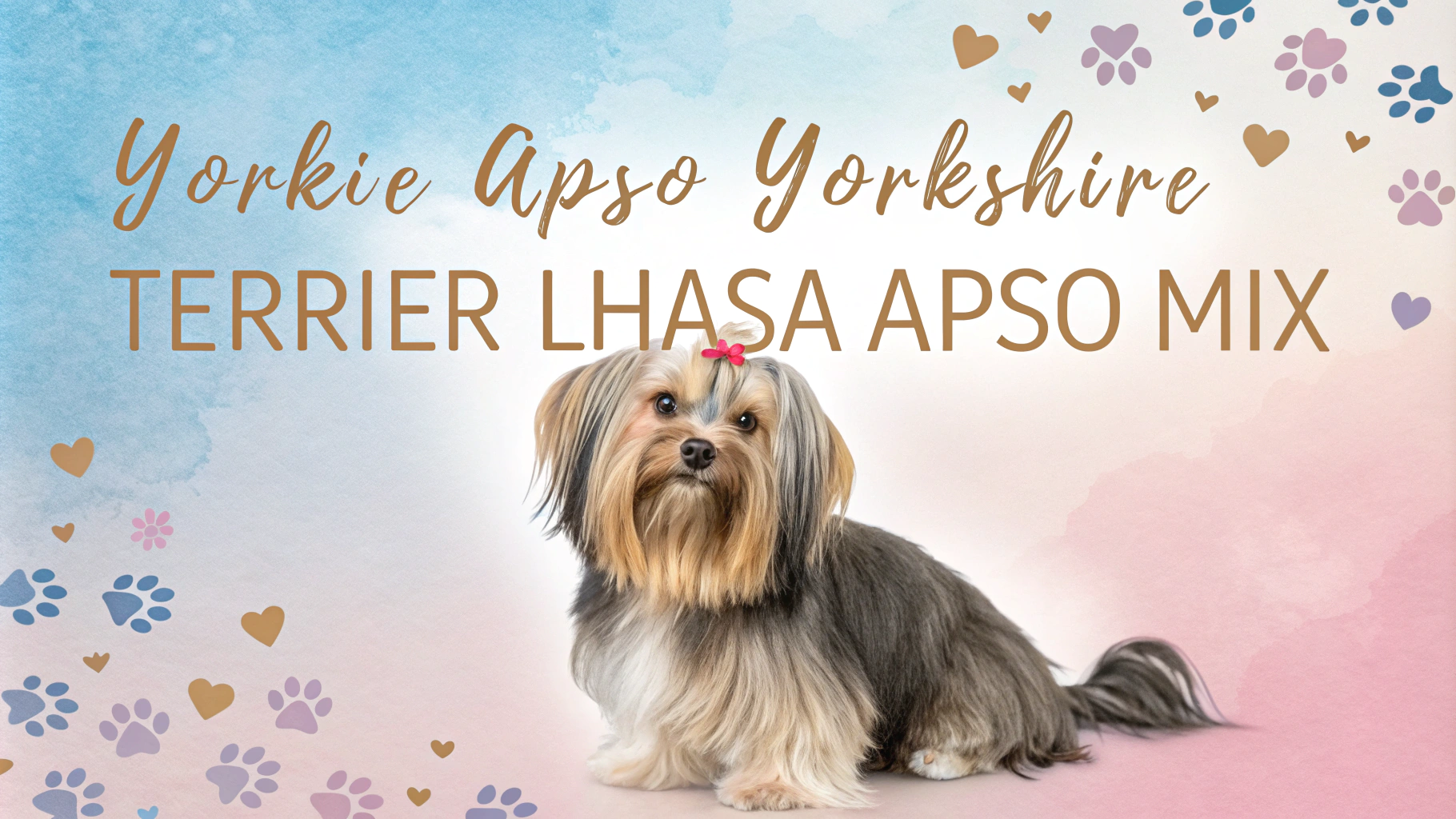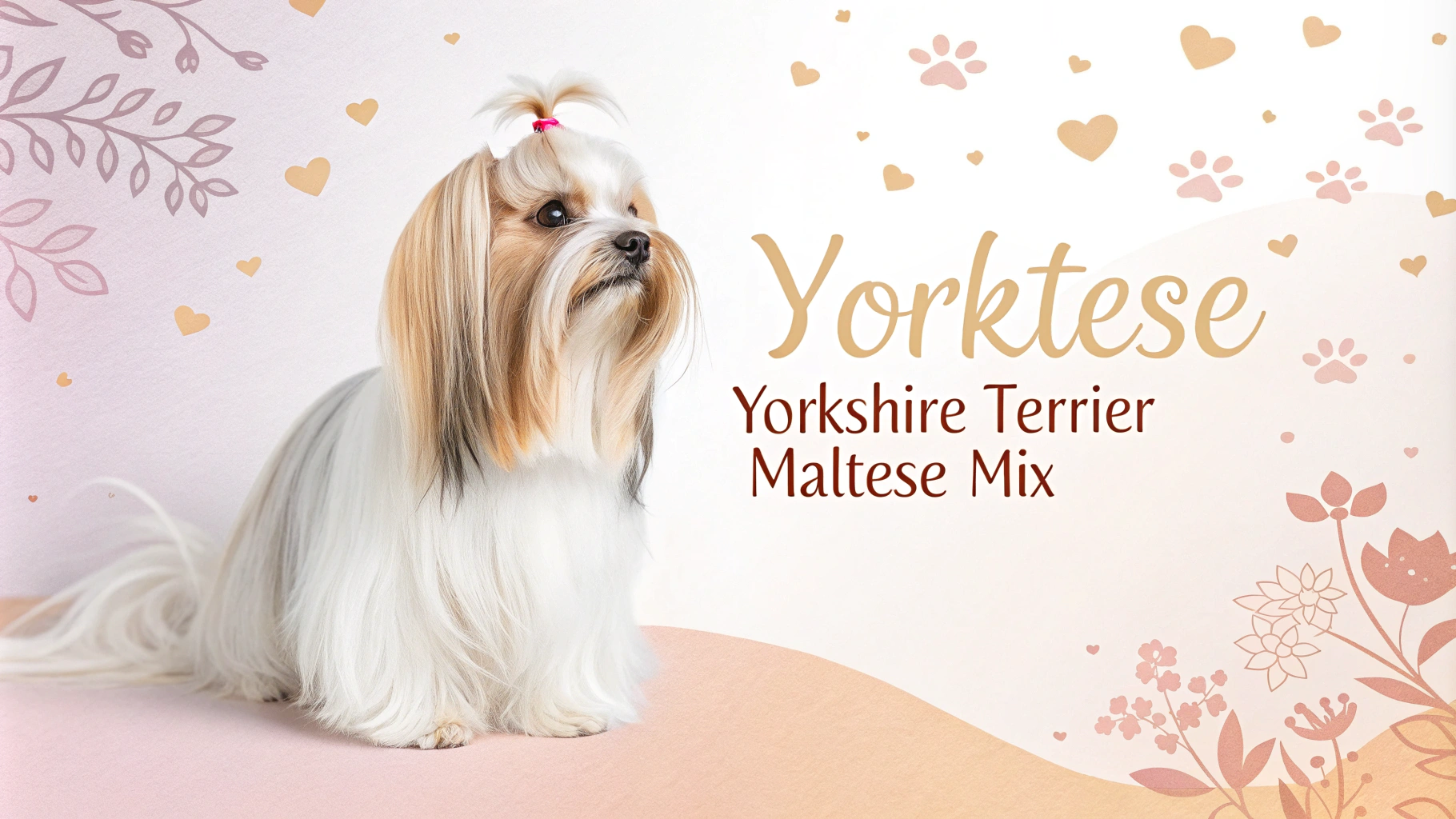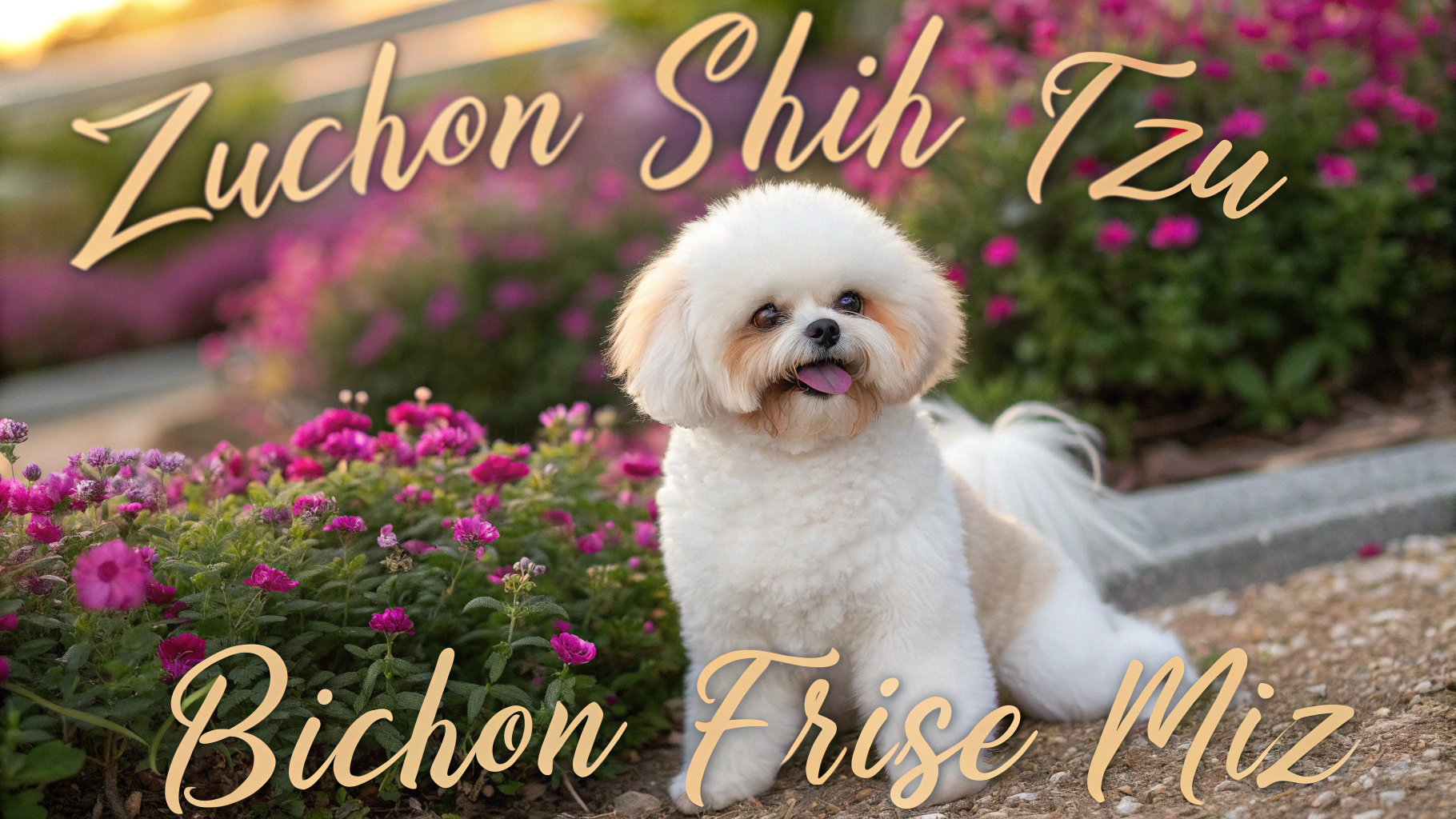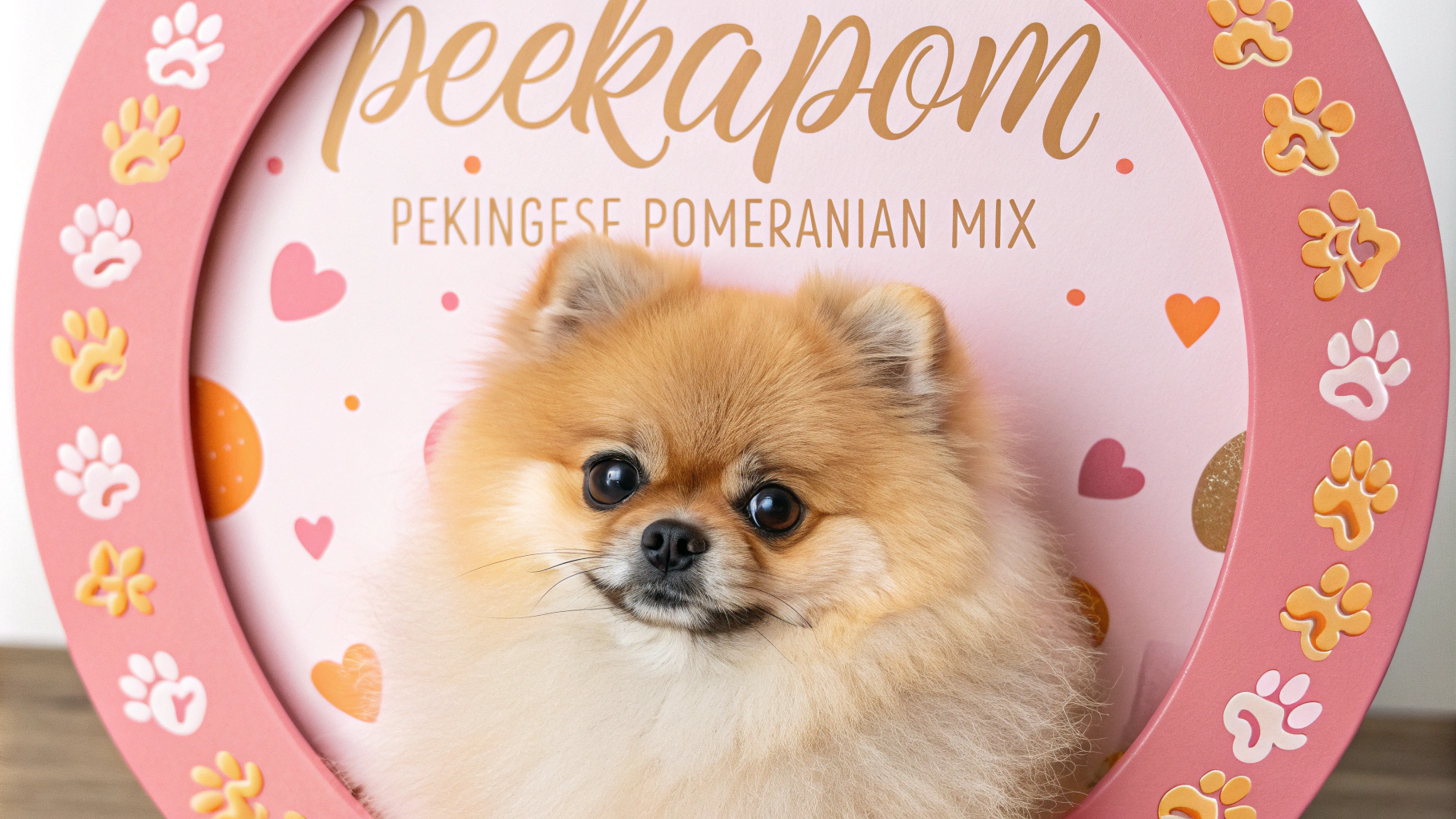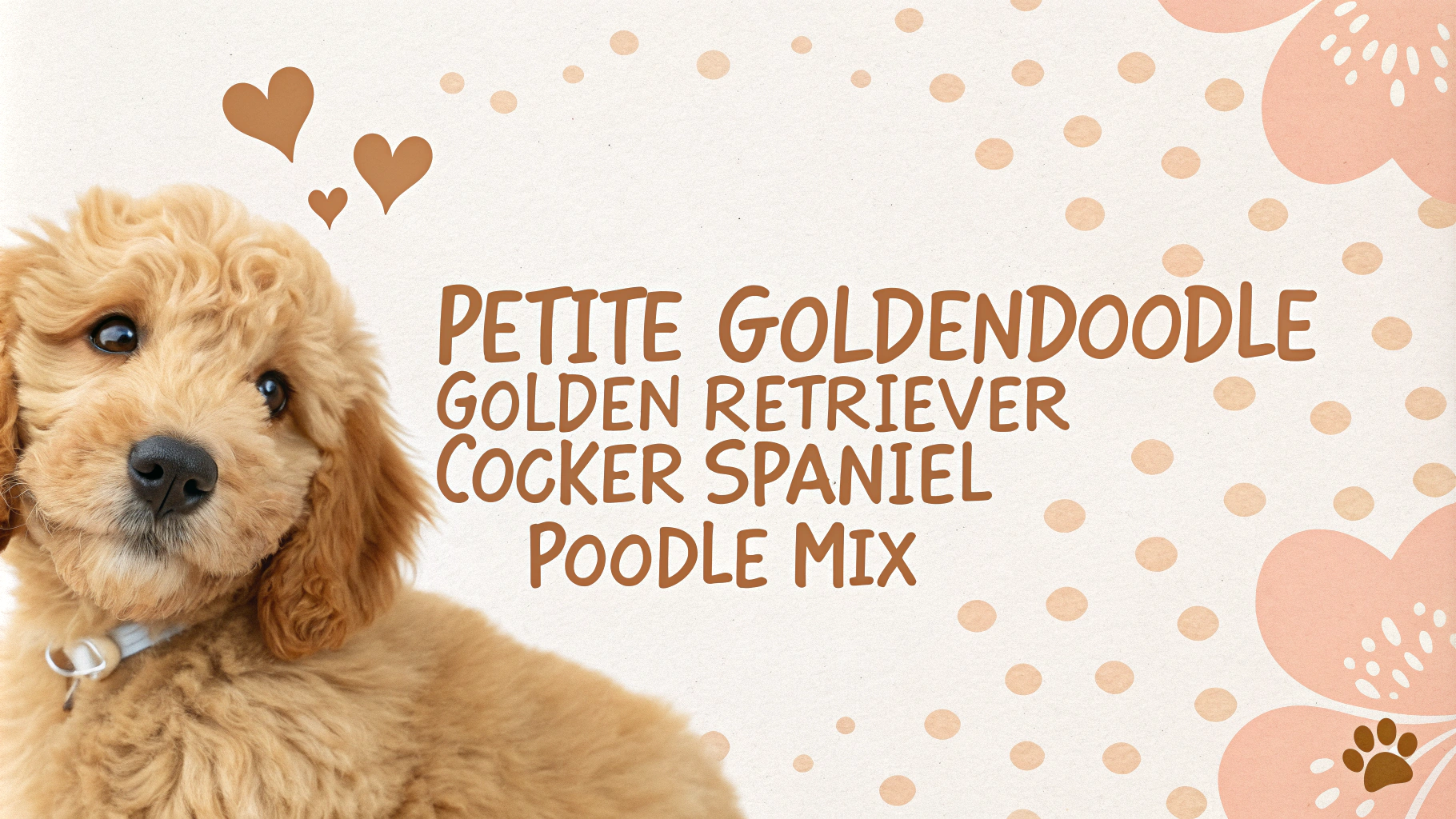The Bich-Poo, also known as a Poochon or Bichpoo, is a charming mixed breed resulting from crossing a Bichon Frise with a Poodle. This designer dog combines the best traits of both parent breeds, creating a small, intelligent, and affectionate companion. Bich-Poos are known for their hypoallergenic coats, making them an excellent choice for allergy sufferers. These playful and adaptable dogs are well-suited for various living situations and make wonderful family pets.
Key Facts
- Size: Small, typically 9-15 inches tall
- Weight: 6-18 pounds
- Lifespan: 12-15 years
- Coat: Soft, curly, and low-shedding
- Colors: White, cream, apricot, black, or a combination
- Temperament: Friendly, intelligent, and energetic
- Good with children: Yes
- Good with other pets: Yes, when properly socialized
- Exercise needs: Moderate
- Trainability: High
Character Traits
Bich-Poos are known for their friendly and affectionate nature, inheriting the best personality traits from both parent breeds. They are intelligent, playful, and eager to please, making them excellent companions for families, singles, and seniors alike. These dogs are typically good with children and other pets when properly socialized. Bich-Poos are often described as:
- Loving and devoted: They form strong bonds with their families and enjoy being close to their owners.
- Energetic and playful: They have a moderate energy level and love to play and engage in activities with their families.
- Smart and trainable: Their intelligence makes them quick learners and responsive to training.
- Social and outgoing: They generally get along well with people and other animals.
- Alert and sometimes vocal: They may bark to alert their owners of potential intruders or unfamiliar sounds.
While individual personalities can vary, Bich-Poos are generally well-rounded dogs that adapt well to various living situations and family dynamics.
History & Origins
The Bich-Poo is a relatively new designer dog breed that gained popularity in the late 20th and early 21st centuries. Like many hybrid breeds, the exact origins of the Bich-Poo are not well-documented. However, it is believed that breeders first intentionally crossed Bichon Frises with Poodles in the United States during the 1990s.
The goal was to create a small, intelligent, and hypoallergenic companion dog that combined the best traits of both parent breeds. Bichon Frises are known for their cheerful temperament and fluffy white coats, while Poodles are prized for their intelligence and low-shedding coats. By mixing these two breeds, breeders aimed to produce a dog with a friendly personality, high intelligence, and a hypoallergenic coat.
As the popularity of designer dogs increased, the Bich-Poo gained recognition and a devoted following. While not recognized by major kennel clubs as a purebred dog, the Bich-Poo has become a beloved mixed breed, appreciated for its charming personality and adaptable nature. Today, Bich-Poos continue to be bred and cherished as companion animals, particularly popular among those seeking a small, affectionate, and low-shedding dog.
Health Concerns
Bich-Poos generally inherit good health from their parent breeds, but they may be prone to certain conditions. Common health issues include:
- Hip dysplasia
- Patellar luxation
- Eye problems (cataracts, progressive retinal atrophy)
- Allergies
- Dental issues
Regular veterinary check-ups, dental cleanings, and eye examinations are crucial for maintaining their health. Responsible breeding practices can help reduce the risk of inherited conditions. It’s important to obtain health clearances for both parent breeds when acquiring a Bich-Poo puppy.
Exercise Needs
Bich-Poos have moderate exercise requirements, typically needing 30-60 minutes of daily activity. Their exercise routine should include:
- Daily walks (1-2 times per day)
- Playtime in a secure, fenced yard
- Interactive games (fetch, tug-of-war)
- Mental stimulation activities
These dogs enjoy both indoor and outdoor activities, making them adaptable to various lifestyles. Regular exercise helps prevent obesity, maintains joint health, and provides mental stimulation. Bich-Poos also benefit from socialization opportunities during their exercise routines.
Space Requirements
Bich-Poos are adaptable to various living situations, including apartments and houses. Their moderate size and energy level make them suitable for both small and large spaces. Key space considerations include:
- A comfortable indoor living area
- Access to a small, secure outdoor space (yard or balcony)
- Dedicated play area
- Safe storage for toys and supplies
While they can adapt to apartment living, regular outdoor access is important for exercise and mental stimulation. Bich-Poos do well in homes with or without yards, as long as they receive adequate exercise and attention.
Nutrition & Feeding
Proper nutrition is crucial for maintaining the health and well-being of Bich-Poos. Their diet should consist of high-quality, balanced dog food appropriate for their age, size, and activity level. Feeding guidelines include:
- Measure portions to prevent overfeeding
- Feed 2-3 small meals per day
- Provide fresh water at all times
- Limit treats to 10% of daily caloric intake
- Consider wet food to increase water intake
Consult with a veterinarian to determine the best diet plan for your Bich-Poo, as nutritional needs may vary based on individual factors. Be aware of potential food allergies and adjust the diet accordingly. Regular monitoring of weight and body condition is essential to maintain optimal health.
Grooming Tips
The Bich-Poo requires regular grooming to maintain its coat and overall health. Their coat can vary from wavy to curly, depending on which parent breed they take after more. Brushing should be done 3-4 times a week to prevent matting and tangling, especially in areas prone to knots like behind the ears and under the legs. Regular bathing is necessary, typically every 4-6 weeks, using a gentle dog shampoo to keep their coat clean and healthy.
Professional grooming every 6-8 weeks is recommended to maintain their coat at a manageable length and shape. Teeth brushing should be done several times a week to prevent dental issues common in small breeds. Nail trimming is required every 2-3 weeks, or as needed. Pay special attention to their ears, checking and cleaning them weekly to prevent infections, especially if they have floppy ears like the Bichon Frise.
Eye care is important for Bich-Poos, as they can be prone to tear staining. Gently wipe around their eyes daily with a damp cloth to prevent staining and keep the area clean. During shedding seasons, which are typically minimal due to their low-shedding coat, more frequent brushing may be necessary to remove loose hair and prevent it from matting.
Training Approach
Bich-Poos are intelligent dogs that inherit the cleverness of both the Bichon Frise and the Poodle, making them generally easy to train. They respond best to positive reinforcement techniques, including treats, praise, and play. Consistency and patience are key in training this breed.
Early socialization is crucial for Bich-Poos to ensure they grow into well-rounded adults. Expose them to various people, pets, and environments from a young age. Obedience training should begin as early as possible, focusing on basic commands such as sit, stay, come, and heel.
These dogs can be sensitive, so harsh corrections or negative reinforcement should be avoided. Instead, use a firm but gentle approach. They excel in activities that challenge their minds, such as puzzle toys and interactive games. Agility training can be an excellent way to provide both mental and physical stimulation for this active and intelligent breed.
Bich-Poos may inherit a tendency to bark from the Bichon Frise side, so teaching a “quiet” command early on can be beneficial. Housetraining can sometimes be challenging with small breeds, so establishing a consistent routine and using positive reinforcement is essential. With their eager-to-please nature and intelligence, Bich-Poos can often pick up on training quickly, making them suitable for first-time dog owners who are committed to consistent training.
